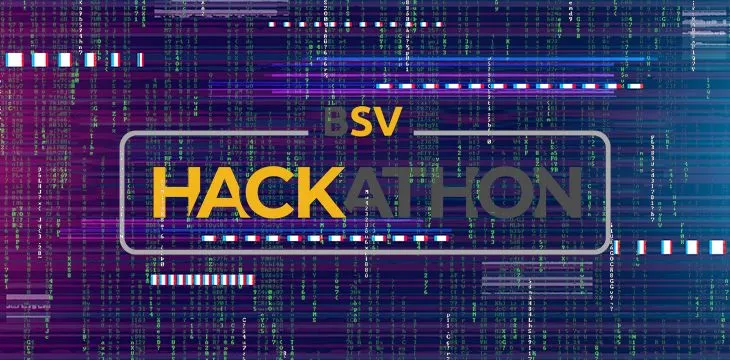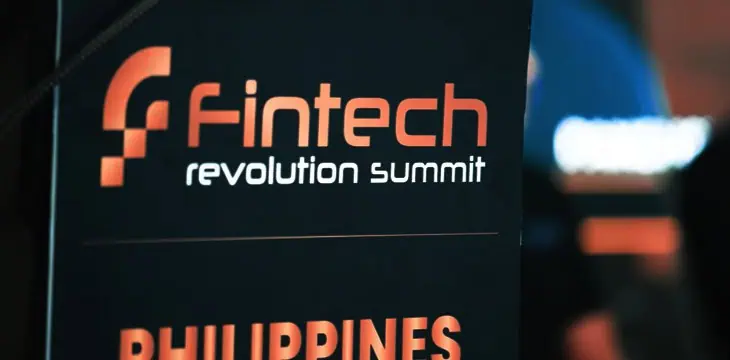|
Getting your Trinity Audio player ready...
|
A few days ago we mentioned Codugh, the Bitcoin API marketplace for developers that won the second Bitcoin Association Bitcoin SV Virtual Hackathon in 2019. Today, June 23, marks another chance for independent Bitcoin developers to make a name for themselves. Good luck! But if you’re joining in, what should you do to prepare? Read on to find out more.
First: bear this in mind
The third Bitcoin SV Virtual Hackathon is a little different to the last two. For starters, the total prize pool this time around is $100,000 (substantially more than previous events). The three prizes are paid—naturally—in Bitcoin SV. The biggest change, though, is the format.
This event will be a “virtual hackathon” rather than in-person, thanks to current restrictions on international travel. That means it runs over a longer period (June 23 – August 18) instead of a single weekend, and there are no in-person meetups. You can still gather your team together and order pizza, just not with the other entrants.
It also takes into consideration participants’ need to work a job and manage a home life in between working on the project. Expectations for how complete a project needs to be to qualify are the same as before, they don’t have to be any more “finished” despite the longer time.
At minimum, you’ll need to have the following by the end of the event: a code submission and GitHub repository with your team’s name, and supporting documentation (which can be anything you like that may be relevant to your project, even photos of whiteboards).
You’ll also need to make a five-minute video that explains and summarizes your entry. This would typically include a short introduction to your team, its vision and goals, a screencast demo of the product you’re building (if available). A business proposition is also essential, especially if you plan on attracting investors in the future.
Finalists may continue to develop their projects after the Hackathon before pitching to the judges at the CoinGeek Conference (which is now also a semi-virtual event) in October 2020.
What you’ll need to have ready
Entries opened on May 26 so if you’re in this event, you probably know the rules already. But here’s a refresher, and a guide to anyone thinking about joining future hackathons.
First up, you’ll need to have Discord, and keep it running for communication with the moderators. Organizers will send team or individual invites to the Discord group via the email registered. If your team members can’t be there in the room with you, you’re free to use whatever medium you like to communicate with each other.
Moderators and nChain staff will be on hand to assist with any questions on Discord, email, the Devpost platform, or Zoom (if requested)—so if you don’t have any of those set up, get them ready. nChain staff will only be online during UK office hours.
Recommended additional resources
These resources can give high-level advice but can’t help with specific details or advice on your project, that part is up to you. They also may not be able to help with things like third-party libraries and tools.
The Bitcoin Association has also recommended some key Bitcoin resources to use and refer to. They are:
– Money Button’s BSV library. This is a tested and reliable Javascript library for Bitcoin BSV that aims to be intuitive and consistent in its code. It uses standard JS conventions and minimizes use of dependencies.
– Bitcoin SV Wiki. A wiki created especially for BSV, it has all the background information you’ll need if you’re less familiar with how BSV works and what it can do.
– Build on BSV Resources Hub. Similar to the above, it contains more technical information aimed at developers.
– Merchant API for fee discovery and transaction submission. This is live with the transaction processors TAAL, Mempool, and Matterpool. Professionalizing the transaction processing industry is a key goal for Bitcoin BSV, and M/API is an important step towards creating a fee market and economy.
– The Original Bitcoin Whitepaper from 2008. If you haven’t memorized Satoshi Nakamoto‘s historic work already, now is a good time to re-read it and brush up on the essentials.
Judges and investors: a few other things to consider
Again, most entrants in the current event should understand these already, but there’s still time to join, and potential future participants should also remember them.
Judges who decide the finalists and prize places will be looking for entrants that stand out. Inventive and impressive use of existing technologies, and what it seeks to do on Bitcoin, should do exactly that.
They’ll also be looking for well-designed user experiences, including who the target userbase is and how easily they’ll be able to use it. “Market fit” is important too, since investors will be watching and judging (even if they’re not on the official panel).
And as for how “complete” the project needs to be… well, it needs to work. That doesn’t mean it needs to be a polished, finished product, but it must actually work to be eligible.
Keep the theme in mind, as well as Bitcoin’s purpose
The theme for the Bitcoin Association 2020 Bitcoin SV Virtual Hackathon is “Connecting the World to One Global Blockchain.” That may change for future events, but the basics are the same. Judges are looking for entries that show off BSV’s key capabilities. So think of a Bitcoin blockchain that keeps a single record of events in a common format, processes and stores all different kinds of data and solves real-world problems.
Think data on the blockchain, think large scale and enterprise, system interoperability, efficiencies and benefits of the one-blockchain concept. Judges will be looking for entries that break down historic data silos, make it easier for businesses to operate across borders, improve interaction between government agencies and businesses in different industries, and improve life for consumers.
Lastly, if you’re a registered entrant or are joining in at the last minute, good luck! Big things await Bitcoin BSV and big things await those pioneers who choose to jump in at these early stages. Bitcoin will someday be the world’s data backbone, and even if you’re not ready for this Hackathon, there’s still room for plenty more ideas.

 09-19-2025
09-19-2025 





